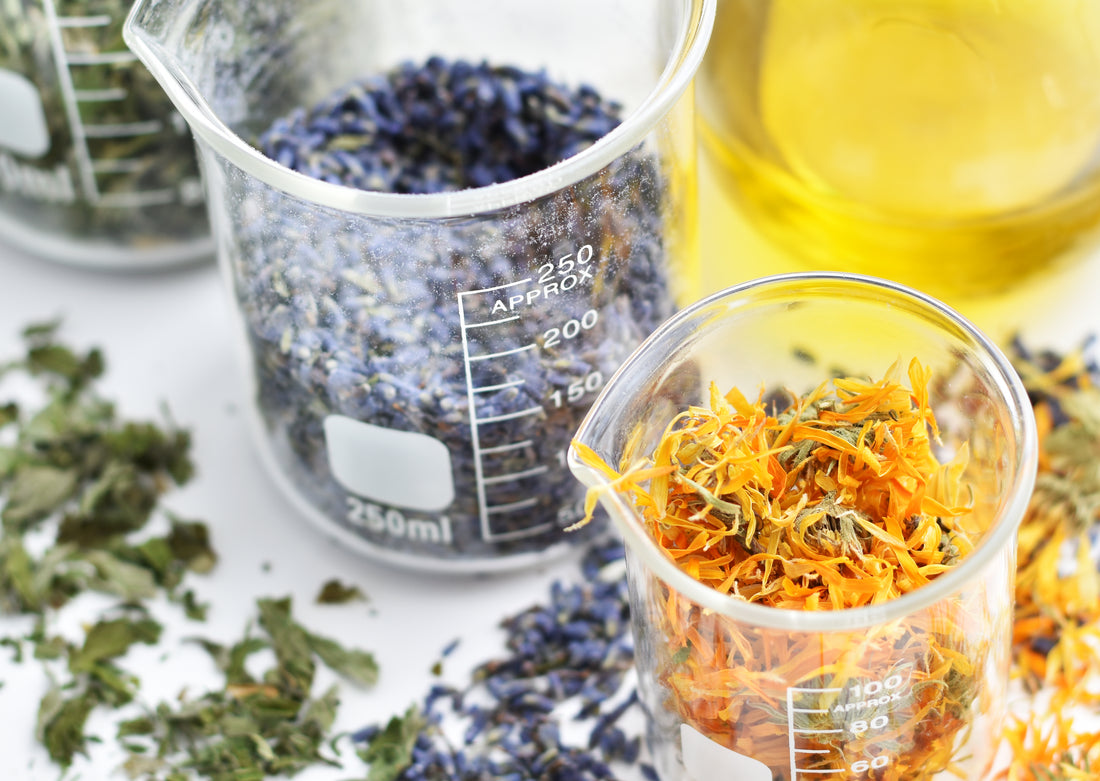Herbalism 101
What exactly is an herb?
On the most basic level, an herb is a plant with leaves, seeds, roots or flowers used for flavoring, food, or medicinal purposes. You likely use herbs everyday! Oregano, Rosemary, Thyme, Ginger, Turmeric, Black Pepper- all of these culinary herbs can be used medicinally as well. In fact, most of our culinary herbs made it into our diets due to their carminative properties.
Herbs are used in every culture across the globe. Despite that, there tends to be quite a bit of confusion surrounding herbs. People tend to focus on the glamorous herbs and ignore the more mundane herbs. And by glamorous, I mean what's dictated by marketing trends, and by mundane, I mean the herbs you likely come in contact with everyday but might just not know how to utilize! Not to go on one of my tangents again... but the mundane herbs aren't as glamorous because they are more abundantly available and harder to up charge!
Traditional Remedies
Our ancestors held the knowledge of plant remedies. This is often referred to as traditional remedies. Historically, cultural groups of people developed traditional remedies based off of the land they lived on and their ancestral experiences.
Herbs traditionally were harvested from the "wild", hence the controversial notion of wildcrafting. However, today, many herbs are cultivated for commerce or grown in gardens for personal use. Working with cultivated plants can be a more sustainable option, if the farmer or grower employs such practices. With the resurgent interest in herbalism, more and more herbs are being cultivated.
In the context of modern life, herbs have served as the inspiration and blue print for many pharmaceuticals on the market. And while herbs certainly should not be used like allopathic medicine or pharmaceuticals, it's intriguing to see how monumental they've been in our development of modern medicine!
What is herbalism?
Just like the practice of medicine, herbalism is a broad practice! It is the act of using a plant for its medicinal values. As one of the oldest healing systems in the world, herbalism has infused itself into our daily lives. From cooking to tea to pharmaceuticals.
What's an herbalist?
An herbalist is someone who practices herbalism. Which, as you now know, could mean many things. Herbalists can be found in every culture across the globe. These are the people holding the knowledge of how plants and people can synergistically work together to cultivate healing.
What does it take to formulate an herbal product?
Well for one, it takes knowledge of the plants and of the body. And seeing as how both are such large areas of study, you'll often find herbal product formulators have an affinity to certain types of plants. For example, I primarily focus on using herbs that are abundantly available and grown in the U.S. My personal ethics intersect with my interests intersect with my lineage, which developed the way that I engage with herbalism & herbal product formulating.
Understanding the energetics of plants, and the way they can work together plays another role. So does extraction method & dosing. Various forms of extraction expel varying properties from herbs. Here at 5th Dimension, we work with a variety of extraction methods to produce our herbal products. Herbalists tend to know which extraction method suits a plant best, which is where many larger companies tend to miss the mark.
Herbs are kinda cool right now (we all know they've always been cool!) and marketing teams play on that by throwing a medicinal herb haphazardly into a product. It's often obvious to herbalists when a product was formulated for sales over efficacy. Look to see if brands consult with an herbalist for their formulations. Trust me, if they did, they would brag about it!
